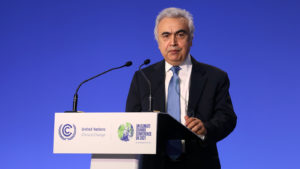I’m writing this on my way home from speaking at the annual TED gathering in Long Beach California, where 1,500 people gathered to listen to what the organisers call “Ideas Worth Spreading”. TED has always been an influential gathering, but then they put some of the talks online and, with over 500 million views, their global reach as a spreader of ideas has become quite a phenomenon.
There is nothing quite like this event, with its eclectic mix of investors, entrepreneurs, activists, think tanks, corporate execs and philanthropists. There’s owners and CEO’s of companies like LinkedIn and Amazon alongside enthusiastic founders of young start-ups hoping to emulate their success. There’s people with big picture ideas about where the world’s going, alongside social entrepreneurs taking today’s practical ideas into the field in the developing world. The latter included many examples of beautiful hope and simplicity, like the guy leaving a good corporate job to help run a social start-up called Wonderbags, which uses insulated bags to dramatically reduce the dangers and expense of cooking fuel in poor villages in Africa.
The optimism is infectious and so the opening session sparked quite a controversy. I gave my worldview with a talk (see video below) titled “The Earth is Full”, arguing a major economic crisis was now being triggered by humanity passing the limits of the earth’s capacity to provide cheap resources, especially soil, climate and water. While I argued humanity was good in a crisis and we’d get through it, my argument left the techno-optimists a little shell-shocked, as they are more used to being uplifted with stories of optimism and endless opportunity.
They were soon reassured again by Peter Diamandis, the CEO of the X-Prize foundation, who argued that while we tend to focus on our problems, technology was an all-powerful force and could deal with any challenge we faced. He also put the case, popular with this crowd, that it was the market rather than government that would be the main driver of solutions. He and I then discussed these issues on stage with the head “TEDster” and event curator, Chris Anderson. When Chris asked via a show of hands which way they were leaning, the 1,500 strong crowd was pretty evenly divided, quite a surprise for this “we can solve anything” audience.
The debate continued in the corridors all week, sparked by more presentations on technology, such as a very interesting liquid metal battery from MIT that is suitable for grid level electricity storage and a stark wake up call from climate scientist James Hansen. Hansen is a rock star amongst climate scientists, having been arguing the case for action since the 1980’s.
As the week moved on, some concluded that the crisis vs techno-optimism division was quite artificial. This view was that of course we faced some serious issues that needed attention, but technology would achieve remarkable things and avoid a serious crisis. Besides, what could be wrong with a little optimism? It cheers you up, gets you motivated and helps get investors on board!
Others, including myself, became more convinced that techno-optimism, rather than being harmless, was potentially quite dangerous. This was all the more the case after we heard a presentation from neuroscientist Tali Sharot on humankind’s “optimism bias.” This explained how we tend strongly towards a view that things will always work out – that the future will always be better than the past. This trait has brought many benefits to humanity over our species history – after all we wouldn’t have gone hunting mammoths if we didn’t occasionally suffer delusions of optimism in the face of quite serious challenges!
But this time we face different types of challenges, ones which might make that optimism bias a threat to our species success rather a source of positive evolution.
Unlike hunting mammoths, where failure leaves you hungry, we face systemic threats with the potential to over-run all attempts to contain them.
There are two key issues to making this the case. Ecosystem lags – the delay between action e.g. emitting CO2 pollution and response e.g. the climate changing – and the inherent risks in a highly integrated global economy i.e. the low margin for error when a globally impactful crisis hits.
We learnt the latter in 2007/8, which many now believe was triggered by record oil prices sucking money out of the US economy, causing sub-prime mortgages to default and almost bringing down the global financial system. This is a good example of systemic risk vs theoretical markets. In theory higher oil prices just reduce demand and encourage alternatives but in reality change happens fast and markets can’t respond, leading to complicated impacts. As we saw, our now tightly wound and integrated global economy can thus be easily shaken to the core by a relatively normal event such as high oil prices.
The other issue challenging the techno-optimist view is lags – when fixing the cause of some problems doesn’t slow the impacts or bring benefits for a long time.
This applies to climate change, as discussed above, where the impact goes on for decades, but also to degrading soil quality or over extracting water from aquifers as is becoming a critical issue in China. When the negative impacts of such lagging impacts are substantial and economic, as is the case with climate and food related issues, it makes solving them even more difficult. This is because as the impacts take hold and a response is pursued, the negative economic consequences continue to build causing economic weakness just when the most resources are needed to fix the causes.
Put these together and we face a serious problem. Driven by their optimism bias, people use the clearly huge opportunity of technology to reassure themselves we won’t face a crisis. They believe any serious limits in the system will be avoided because technology will intervene and we’ll adapt. There are two reasons I think this is wrong and may actually be dangerous.
Firstly, while technology has huge potential to address the issues we face, without strong price signals and other government support, large-scale technology change takes a very long time. We see this today where, though there are many programs supporting clean technology around the world, it is taking a long time – many decades – for this technology to have scale impact.
This is the second reason the techno-optimists view is wrong, the science says we simply don’t have a long time. In fact we’re completely out of time, with the evidence clear that the ecosystem limits have already been breached. This is no longer forecasts but rather the measurement of today’s reality. Record temperatures for three decades in a row, acidifying oceans, soil system overload, aquifers depleting and all that resulting in rapidly rising commodity prices as argued be investors like Jeremy Grantham. And because of the ecosystem lags, this process and its economic impact has a great deal further change already built in by emissions over recent decades.
But can’t technology drive rapid change? Everyone at TED holds up their smart phones as a wonderful example of such fast, transformational change. This is a good and correct example, but it needs to be put in perspective. This is what I call a “toy technology” – something that makes our lives more convenient and more fun. It also doesn’t threaten a powerful industry that then fights against it. The oil industry alone is a $3 trillion per year economic powerhouse, add on coal, cars and fossil fuelled power stations and it’s going to take more than a Steve Jobs design genius, to get that amount of capital to move aside. Thus the question becomes time, something we’re out of.
I am a big believer in the power of technology and markets. I can see how they can combine to make our lives safer, cleaner and more secure. But given the scale of our challenges, particularly around climate and food, it would be naïve to think they are capable of delivering the change needed until government takes strong action to kick-start a true scale transformation. The danger in techno-optimism is that it becomes a form of denial. That things aren’t that serious and therefore politically difficult change that will confront powerful vested economic interests can be avoided. Such a view is reassuring, it feels good and it fits nicely with our genetic tendency to optimism.
Unfortunately it’s also wrong.






